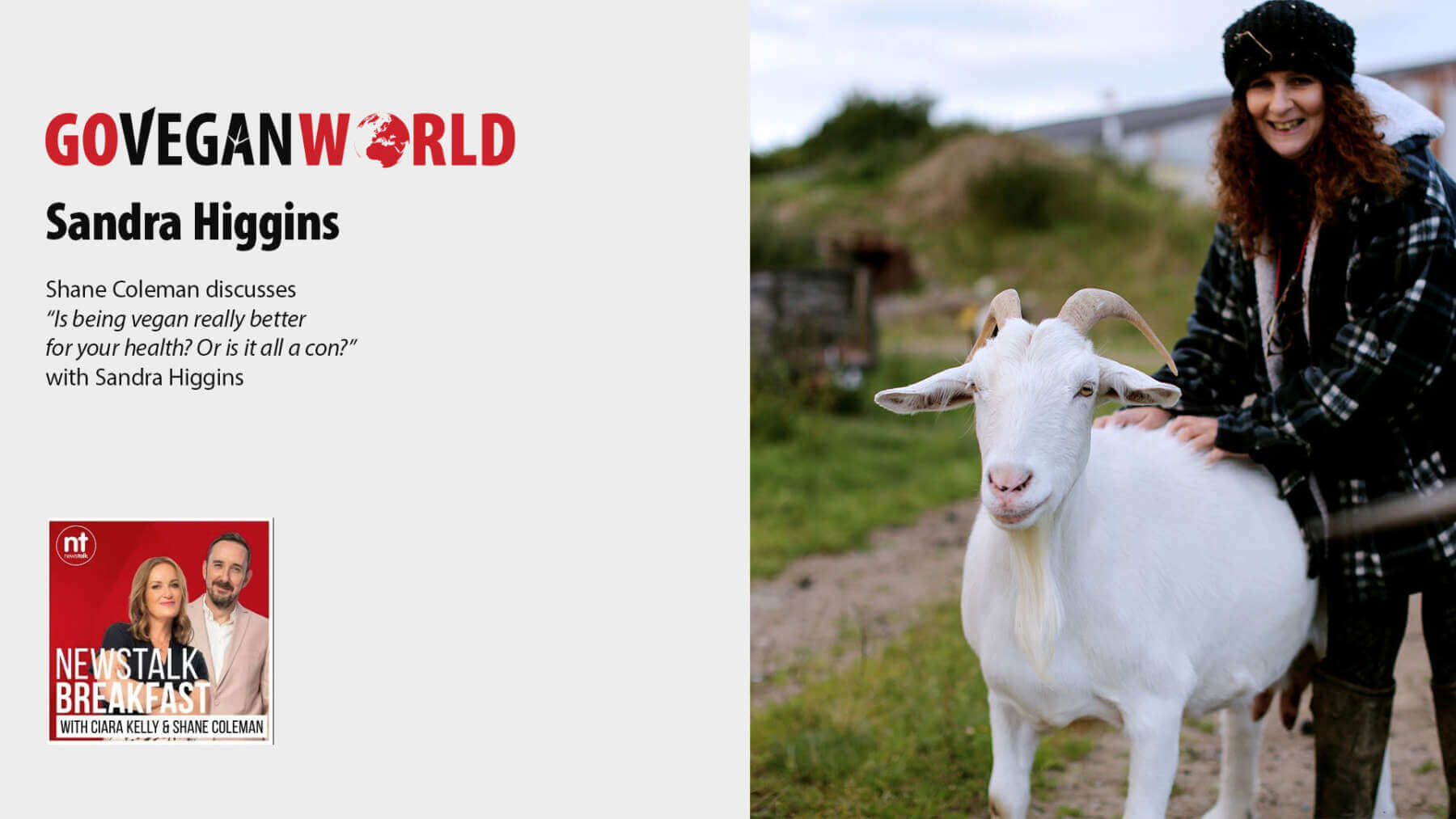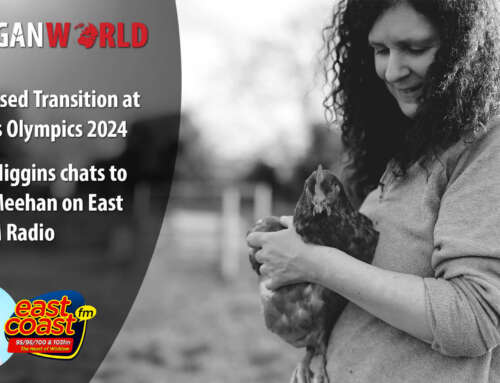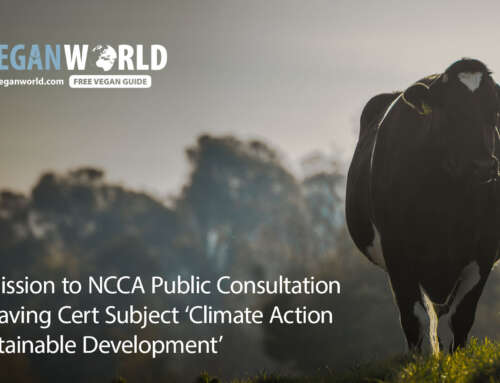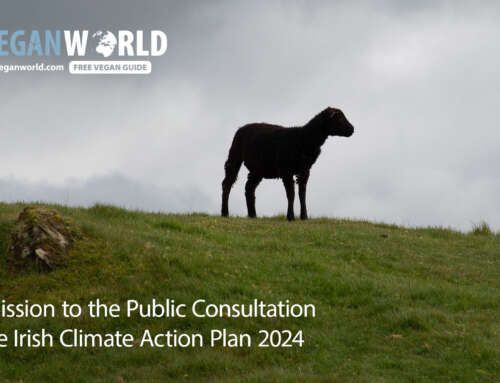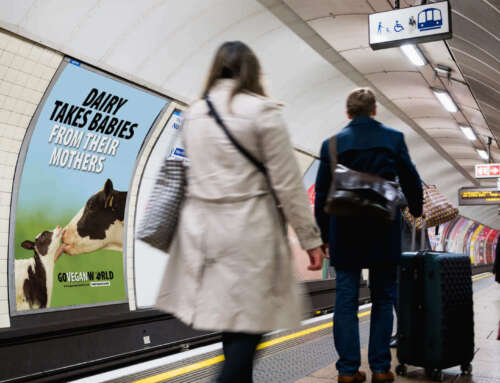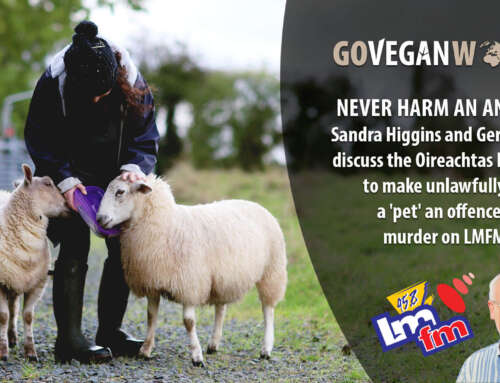‘The Great Plant Based Con’: Shouldn’t that read ‘The Great Animal Agriculture Con’?
12th June 2022
People do not go vegan for the environment. Neither do they go vegan for their personal health. Veganism is the manifestation of the belief that other animals, being sentient, are not our resources. We do not have the right to use or kill them. Being vegan is not a diet but living vegan involves eating a 100% plant diet. It so happens that this is the most sustainable and environmentally friendly diet we can eat, particularly if we reduce the amount of processed food we eat. A plant diet that is well balanced with a high intake of whole foods, is also nutritionally adequate and has health benefits.
These are the facts. They are supported by scientific evidence. Reports that are valid, reliable and credible, continue to appear in the literature in favour of a plant-based diet for many reasons.
Only a few weeks ago the UK Government launched Climate and Health: All Our Health, encouraging health professionals to promote a plant-based diet for health and environmental reasons:
“The foods most damaging to our health are often those with the highest emissions, pollution, land and water use. A diet rich in plant-based foods, and lower in animal source foods which have a significant environmental impact, has benefits for health and the environment. Adherence to the Eatwell Guide which encourages a high consumption of fruits, vegetables, wholegrains and plant-based protein, could contribute to a 7% reduction in mortality and a 30% reduction in greenhouse gas emissions.
If we, as health and care professionals, can encourage people to adopt a balanced, sustainable diet and promote wider changes to our food system, we would reduce the environmental impact of food production and supply, as well as reduce the risk of diet-related disease.”
The claims made by Jayne Buxton, who is an ambassador for the Real Food Campaign UK, which promotes animal agriculture, in her recent book ‘The Great Plant Based Con’ are astounding in their lack of credibility and supporting evidence. Sandra Higgins, director of Go Vegan World, recently joined Shane Coleman on Newstalk radio to discuss Buxton’s controversial claims.
One of the easiest, most effective, actions that individuals can take to reduce their impact on the environment, climate change, pollution, desertification, and loss of biodiversity, is to eat a plant diet. The fact that this is easy is something that should be promoted, not criticised as Ms Buxton has done. Accusing vegans of virtue signalling misses the point entirely. Vegans are not calling attention to themselves; they are, in fact, doing quite the opposite. They are attending to the very broken speciesist system we are living in and asking for it to change.
Ms Buxton refers to UK statistics where emissions from animal agriculture are lower than emissions from other industries. However, the UK is not self-sufficient in food production, and it imports animal products from other countries at an extremely high cost to the environment and the climate catastrophe. To truly appreciate the problem, we need to look at the global situation. The latest report from the United Nations Food and Agriculture Organisation (FAO) on the greenhouse gas emissions originating from the global food system states that almost one third (31%) of human caused climate emissions originate from the world’s agri-food systems, most of that emanating from animal agriculture. The UK imports a significant amount of animal products from Ireland where our GHG emissions from farming are 37.1%, again most of that being caused by animal agriculture. This is an astounding contribution to the catastrophic situation we are facing due to climate change. The situation is even more grievous when we consider the inefficiency of the animal agricultural system of food production.
The use of other animals for the flesh causes at least twice the GHG emissions of plant based foods. Globally, animal agriculture uses 83% of the world’s agricultural land, but delivers only 18% of our calories (Poore et al, Science, 2018). Using cows for their flesh (“beef”) uses 60% of the world’s agricultural land but accounts for less than 2% of the calories and 5% of the protein consumed worldwide. (Source: Union of Concerned Scientists).
Ms Buxton also criticises the nutritional aspects of a plant diet, although she is not a Registered Dietitian. Go Vegan World cautions the public to ensure that they read reputable sources of information where their health is concerned. All the major world dietetics associations state that a 100% plant diet is nutritionally adequate and has many health benefits. There are some nutrients that everyone needs to ensure are present in their diet in adequate amounts. Please refer to our section on diet and nutrition for more detailed information. For now, it will suffice to say that vegans do not require copious amounts of supplements as stated by Ms Buxton. The diets of farmed animals are fortified or include micro-nutrients in other ways, such as by using iodine as a cleaning agent in the dairy industry. That is why animal products contain these nutrients. A number of foods that are common place in most peoples’ diets, such as breakfast cereals, are fortified with added nutrients. Some plant-based foods are among the foods that are fortified. If you are consuming a sufficient range of these foods, you should not need a supplement. However, if you are concerned that you are not obtaining sufficient micro-nutrients, you can very easily take a once daily supplement to ensure your personal health.
Plant diets are not lacking in amino acids or protein. Protein deficiency is virtually unheard of outside of areas suffering malnutrition or hunger. If you eat a wide variety of foods, paying particularly attention to wholefoods such as fruit, vegetables, grains, pulses, nuts, and seeds, you will have a more than adequate intake of protein. Analogues of dairy, eggs, fish, and flesh are especially useful because they make the transition to a plant diet very painless, and many of them are fortified with added nutrients. It is up to every individual to be responsible for how they eat, even when their diet is a 100% plant diet. No one is healthy on a junk food diet, including non-vegans. To ridicule a moral belief system by referring to some of the processed foods that may be used to replace the exploitation and slaughter of billions of animals every year, by an industry that contributes very significantly to environmental destruction, loss of biodiversity, habitat destruction and harm to free-living animals, species extinction, climate change, human illness, pandemics, and extremely poor working condition, not only lacks credibility. It flies in the face of everything that is recommended for us to avoid disaster and live better lives. Arguably, this book should not be given any airtime or media coverage.
Ms Buxton, like a lot of people who are conned by the industry, chooses to believe that there is a fair way to breed and exploit other animals for food, if the public consume grass fed, locally farmed animals. She also denies the existence of feedlots in the UK. Feedlots exist in the UK, as they do in virtually every animal agricultural system to ‘finish’ i.e. increase the weight of animals prior to slaughter. The grass-based system is a net contributor to climate change. All animal agriculture and the consumption of animal foods, regardless of the farming system used or species of animal exploited is harmful to the environment (Garnett, Tara, 2017, Grazed and Confused, Food Climate Research Network, University of Oxford). Non-vegan regenerative agriculture is part of the climate change problem. Plant based agriculture is part of the solution.
There is no way that we can breed other animals to use them as our resources, exploit their bodies and take their lives from them, and call it just or right. The quicker we stop trying to find new ways to do what remains morally unjust, the better. Just go vegan.

